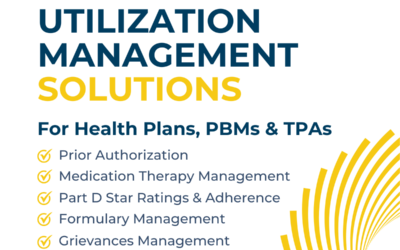Per a recent article posted by MedPage Today, researchers revealed that “ChatGPT provided incorrect or incomplete information when asked about drugs, and in some cases invented references to support its answers, two evaluative studies found.
In the first, 39 questions sent to a drug information service for pharmacists were later posed to ChatGPT, which provided no response, an inaccurate response, or an incomplete response to 74% of them, Tina Zerilli,, PharmD, of Long Island University in Brooklyn, New York, and colleagues reported.
For example, in a response to a real query of whether there was a drug interaction between nirmatrelvir/ritonavir (Paxlovid) and verapamil (Verelan), a blood pressure lowering drug, ChatGPT indicated that there were no interactions, though ritonavir can interact with verapamil.
Moreover, in instances where the artificial intelligence (AI) chatbot did provide a response with references, it did so each time citing references that were fabricated, with URLs that led to nonexistent studies, according to findings presented at the American Society of Health-System Pharmacists (ASHP) midyear meeting.”
As AI continues to integrate into healthcare services, the recent studies highlighting ChatGPT’s limitations underscore the need for a nuanced approach. At Agadia, we acknowledge AI’s potential while recognizing its current limitations. Our approach to AI, particularly in auto-decision processes within PAHub™, is carefully calibrated to augment human decision-making rather than replace it entirely.
AI serves as a facilitator, streamlining processes such as auto-decision in prior authorization requests. However, it’s crucial to emphasize that the clinical criteria for these decisions are meticulously pre-configured by human experts. The power of AI lies in accelerating processes, not making autonomous clinical decisions.
In contrast to the studies’ findings, PAHub demonstrates how AI, when harnessed responsibly, can enhance efficiency. By automating certain aspects, we empower healthcare professionals to focus on critical decision points, ensuring that the information generated aligns with the highest standards of accuracy and relevance.
While the studies rightly caution against overreliance on AI, Agadia exemplifies a balanced integration. Our commitment to leveraging technology underscores the importance of human touch in configuring clinical criteria. This harmony between cutting-edge technology and experienced clinical expertise positions PAHub as a transformative tool, emphasizing that the human touch remains indispensable in healthcare decision-making.
As the debate around AI in healthcare unfolds, Agadia stands at the forefront, providing solutions that prioritize accuracy, compliance, and a seamless blend of technology and expertise. Learn more about our innovative approach to healthcare solutions at www.agadia.com.










